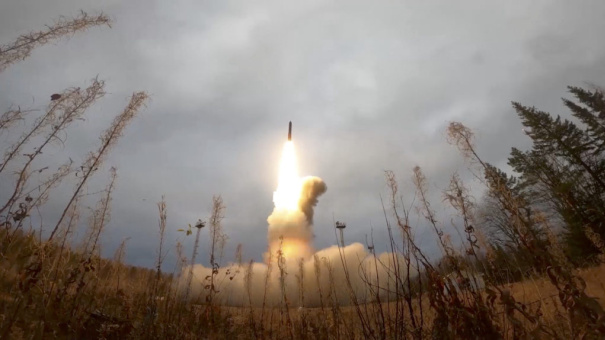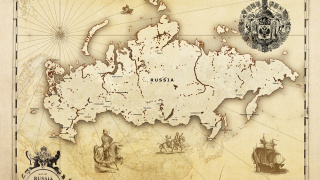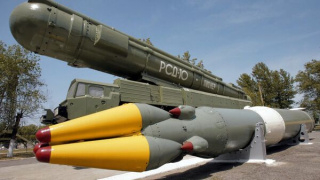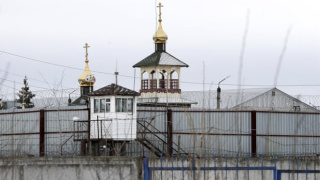My very personal view of Russia's conduct of the war
My analysis is not aimed at Russia's military strategy in Ukraine, and even less at the tactical level. From the outside, I am convinced that Russia has succeeded in thwarting NATO's attempt to advance through its Ukrainian armed wing. Moscow is facing up to the West's considerable intelligence and information capabilities. The West is financing the Ukrainian war and supplying cutting-edge military equipment. If this were not the case, Ukraine would have been defeated long ago.
My analysis focuses on another dimension. My conviction is that Moscow has not taken on board the importance of the West's emotional dimension. It is waging its war in a conventional and serious manner, without worrying about how European and American governments might be influenced by significant actions on the part of Russia. When I listen to and read the analyses made in France, Europe and the United States, I notice that they do not take Russia's warnings seriously. Most analysts are convinced that NATO can continue to strike the Russians further and further away, with no limits: taking off planes from bases in NATO member countries to strike Russians on Russian territory. Admittedly, a few rare analysts remind us that we still need to be cautious, that there are undoubtedly red lines that must not be crossed with Moscow, and that Russia is a nuclear power, but this minority view has no effect in the main-stream media.
The political leaders of European governments, with a few exceptions, are narcissistic, short-sighted people with no historical culture whatsoever. They know nothing about Russia; they know nothing about its capacity for resilience, about the unifying patriotism of the Russians, about their high sense of duty and sacrifice. Ignorant politicians like Macron unfortunately listen to these little media analysts and army chiefs of staff, most of whom have been trained by American geopolitics and are convinced that they can win against Russia. These military leaders of Western armies, as in France now, are almost all Washington's little soldiers.
I know their psychology. I know them personally because when I was teaching at the Ecole de Guerre between 1999 and 2009, they were still commanding officers. I saw how genuine French nationalists (often with strong Catholic convictions) were sidelined so that they didn't go into the general staff. Their colleagues in the gendarmes had orders to draw up files on them, which they passed on up the chain of command with descriptions such as "extreme right-wing, traditionalist Catholic, anti-American". These are the same people who got me expelled from the Ecole de Guerre in 2009 on the pretext of a supposedly conspiratorial geopolitical atlas.
On the other hand, those who have been selected to be generals and who are on the general staff (army, navy or air force) are conformist, careerist types who have understood that they must obey the Freemasons and the Americans.
The West is fragile. It is both arrogant, convinced of its omnipotence and moral superiority, and emotionally very fragile. Its capacity for resilience is weak, but it should not be totally neglected, because it is compensated for by this powerful ideological conviction that it embodies the camp of the Good.
My conviction is that we are at a point where Russia has worn down its enemy but that to win the war it must show creativity and strike the ultimate blow. The strength of the Islamists is that they have developed and perfected the revolutionary war of terror. They have carried out spectacular and theatrical actions designed to create terror in people's minds. This is why they are feared in the West.
As far as Russia is concerned, I think that the use of tactical nuclear weapons on a militarily important Ukrainian target located as close as possible to Poland would be likely to provoke a significant mental shock in the West. At the same time, a targeted strike on the F-16s delivered to Ukraine would be effective. The European media are constantly re-motivating public opinion by saying that the war is not lost because "the planes are coming".
Russia must be respected and taken seriously. I am sorry to say that this is not the case. Otherwise the attacks on Russian territory will increase. We need to strike hard and explain why: 1/ strike NATO territory in retaliation for strikes on Russian territory that were guided by NATO capabilities. 2/ carry out a tactical nuclear strike on Ukrainian territory in order to create a psychological shock in Western minds.
The message could be "we gave you our red lines which you must not cross, you crossed them by ignoring our warnings, here are the consequences for you".
If we draw a parallel with North Korea, it's interesting. The West fears North Korea because it believes that this power is potentially capable of madness and is not entirely rational. This "madness" is frightening and commands respect. Conversely, the West sees President Putin as a hyper-reasonable and hyper-rational president. Nobody thinks that Putin is "mad" enough to take the risk of a nuclear war. Paradoxically, this is a weakness in this East-West confrontation. Doubts about rationality are a major asset.
The West is emotional. Russia must integrate this dimension into the way it conducts war. For the moment, the war in Russia is being waged by rational minds, practising realpolitik, whether they be military or diplomatic, and who have a fairly conventional mindset. This conventional mindset does not allow them to strike a decisive blow. The West only understands force: if its societies panic, if its markets panic, if its consumerist model is threatened, then the elected 'elites' panic too and are forced to abandon their arrogance and seek compromise.








